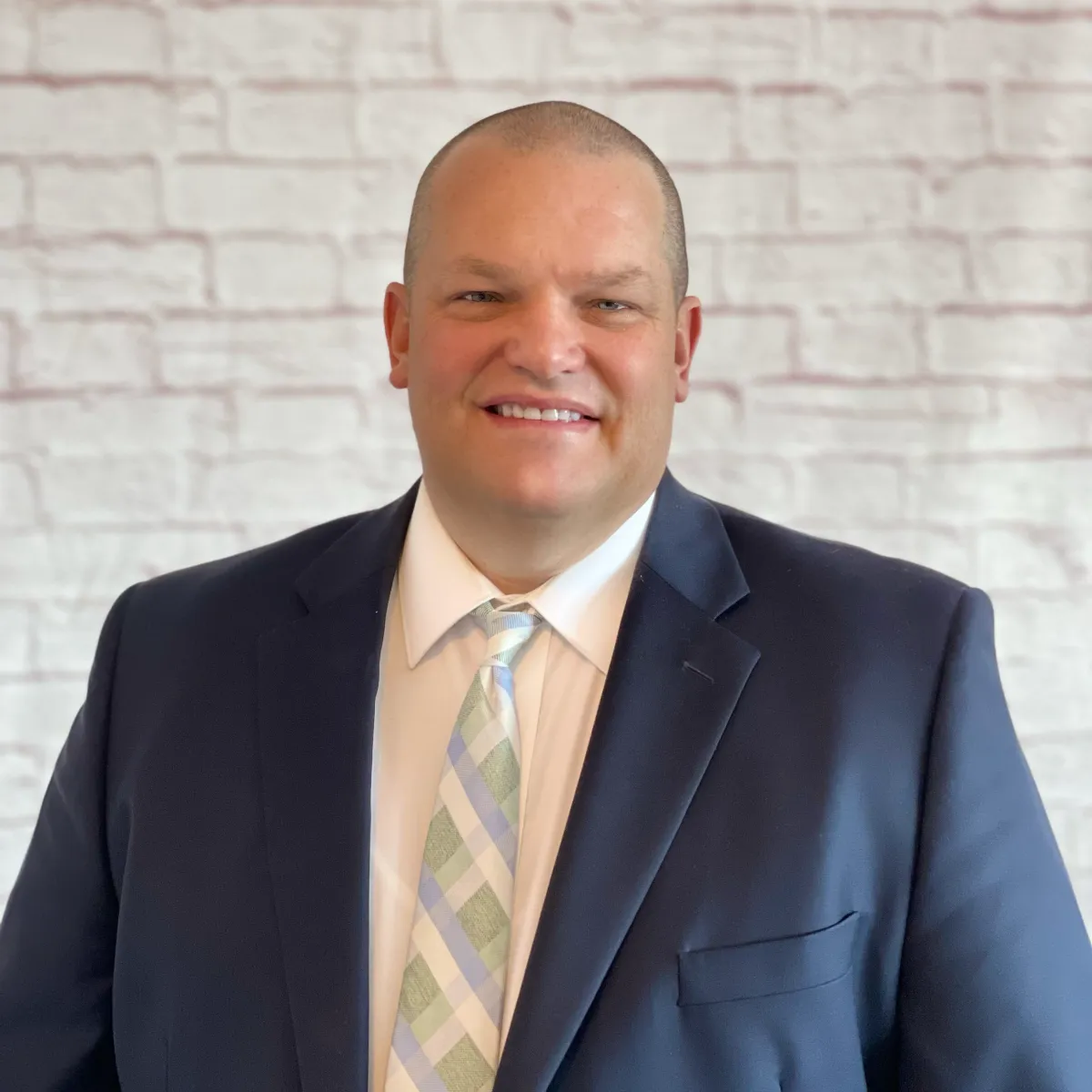Articles and Podcasts

The Evolution of America's Cities and What It Means For Your Practice
The Evolution of America's Cities
and What It Means For Your Practice
Right before our eyes, America's cities are being reinvented and reimagined. They are not what we have seen before. This short episode shows just how America is changing. The Davos Economic Forum Predicted (and Mandated) that Americans would prefer one direction for America's future. It seems that we are heading in a new direction entirely. Doctors should be aware that places they want to practice in are diverging from what the ruling Elites have told us to expect (and demand).
Watch the Podcast Video Here:
Listen to the Podcast Here:
Read the Transcript Here:
[00:00:00] Welcome to the Perfect Place to put a practice podcast by Scott McDonald and doctordemographics.com. The best source of demographic, psychographic, and marketing information for professionals.
Hello, this is Scott McDonald with Dr. Demographics and this episode is about, uh, a new model of considering where to put a practice and we we're calling it the new.
Uh, there are some major changes going on with how people are examining areas and determining whether a practice site is viable or not. I cannot say if it is true in every area, but we do through our processes, have a pretty good idea of what's working and what will be a good investment for you to.
So what I want to talk to you about today is the process specific locations will have to come at a future time. [00:01:00] So please sit back and enjoy this episode of the Perfect Place to Put a Practice podcast. And, uh, always co. Feel free to contact us at doctordemographics.com to see if we might help find the perfect place to put a practice.
We call this concept the new city. It is because really we're looking at different metrics than we have in former times to determine the viability of places. Now the United States is going through some significant changes. Because of that, we must look at different metrics than we had previously.
America is being reinvented right under our nose. But the elites, the opinion leaders on demographics seem to have missed the memo. They're writing articles and giving speeches about what they want to be different in America rather than what is likely [00:02:00] to be different. There is a lot of money at stake media, politicians, realtors, and developers all stand to lose if the truth were known.
The US is growing and developing into something different than what they thought. America isn't what, what they thought it was. And it's changing in surprisingly fast, uh, paces in different directions. Now I'm going to be using the research of Joel Kotkin. He's the Roger Hobbs Presidential Fellow in urban, UH, features at Chapman University and Wendell Cox, the principal of Demographics.
Both men are just brilliant demographers and have taught me a lot. Both are gift and not only looking at the numbers, but social commentary. I referenced what they said on the future of cities. [00:03:00]And I just want to welcome you to the urban future. Now, these two gentlemen have been looking aggressively at what makes city practices and businesses do well, but they also examine the liabilities, uh, of these.
So I want to take seriously what they've written over time. Uh, as I said before, I, I, I'm relying on their research and opinions. I can't say as, can prove firsthand all they've said, but sure makes sense. Now, reliable demographers and social scientists are making big predictions about what's going, uh, have an, what's going to have an impact on healthcare practices and politics.
Couple of things that may be a little controversial. People are speculating on the red wave of 2022. It didn't. But in 2024, I believe, based on my [00:04:00] research, that this will change as we consider the forces behind the trends. The exodus from blue states will happen as the immigrant shifts, which are most likely in blue sanctuary states really can be felt.
Now, keep in. The Hispanic residents currently in the United States are not going to be happy, uh, with this because you see, they're the first people to be victimized by crime cartels. Many who come from Mexico, they have a glut of illegal aliens. But by the way, they're from all over the. You see they're fighting for unskilled worker jobs in the United States, which pays them far more and gives them better living conditions.
But they're flooding our country. Now, if we are correct, you're not going to have to wait very long for [00:05:00] this opinion to to be proven. Also, the Asian immigrants are likely to increase as well. China is in a disaster of its own. On another item present. Biden's supported supporters are likely going to break in panic this summer.
There is already a move to replace him in 2023. No charismatic Democratic leader is rising to the top, at least not that I've seen. Big City Mar Meers are also having big in fights. Uh, east Coast, west Coast, you know, California, Illinois and New York are fighting for federal dollars in projects.
Exasperating regional tension. I don't see any way around this, but I, I see it as definitely [00:06:00]happening. California and the Northeast states are suffering from a severely declining birth rate, what is known as the natural population increase or decrease, and a shrinkage or a shrinking percentage of the number of immigrants, uh, are expected to dominate.
They've already seen a decrease in their representation in the House of Representatives over the last 10 years. Historically, California has lost, uh, another congressional seat. Pressure is rising and I don't know where it's going to leak, but I know it's gonna be tense. Now given their higher taxes and cost of living, not to mention greater regulations, there is increasing demand for affordable housing in several states for the lower and middle class populations, but it won't arrive fast enough.
These factors are like likely to reduce [00:07:00] natural extens. Thus closing off the potential for New City expansion, which we see in other growing states. The New City model will only work when adults aren't running the show. Will the miracle of Democratic victories repeat itself in 2000, uh, in 2024 and save the day?
I don't think. Will Colorado get bluer? Mm. Will Virginia grow bluer? Nah. How about Pennsylvania? Nope, we don't think so either. Now, how about Virginia or Ohio? West Virginia? You see these are earthquakes likely to be felt all over the country, and I don't see that they're gonna have an easy or quick re.
[00:08:00] Listen, everybody, California, in case you haven't noticed, is broken and it offers no solutions to what's going on. I wish I could say different now. That is the cause behind the Great Migration. The elites think they must put up with Nons because we have no alternative. Now their alternatives always seem to be too expensive to us, the consumers, citizens, in terms of the quality of life and freedom.
Recently, we had this conference in Davos, Switzerland. It proves that the elites don't care and have no answers. They assume America will follow a path that they and John Kerry laid out, that it is inevitable. They forget that America reinvents itself regularly. So what that in fact is [00:09:00] what Americans do.
If your practice is in a place with high cost of doing business, expensive housing, and long commutes, you should be looking aggressively for alternate sites for to practice and do so now. Otherwise, you are vulnerable as Europe and Asia to declining wages, reduced availability of affordable housing and a a smaller reduced popul.
We're already seeing this occur in China. Now, in case you haven't noticed, China has lost a significant amount of population, not to covid, but to people migrating to other places. You see, people will vote with their feet and in North America that's especially true. Therefore, you would be wise to consider long-term desirability of the space that you occupy.
In the country for residents and its [00:10:00] attraction to patient bases, not the short term rises and the cost of space. Americans can have their, their offices more expensive, but they can't afford to go to a place where there are fewer Americans. Americans are at heart pioneers. They don't have to live where success has been proven to them in the past.
They're certainly, certainly willing to create something better than what they've seen in the past, and that is the attraction of the New City's model. Remote employment and online shopping are new phenomenon and offer rel realistic lifestyle alternatives to our present. So, in other words, I think there are some changes.
We are yet to be able to be introduced to the elites. Hate that, uh, some politicians and most media outlets hate that as well. You see, it [00:11:00] robs them of power and control. They were not planning on our citizens having new housing alternatives in our. They kind of assumed that there is no room to grow and build new houses to develop.
It is sparking the creation of the New City's model. And this has no parallel in Asia or Europe. I should point out now I believe that in Davos, Switzerland, they created a model and it was revealed that relatively few people have a huge amount of our, our. Uh, but that's not the whole story. Yeah. I'm sure they ha are wealthy, but are the elites as powerful as they think they are?
They are not. They do not have a movement, uh, uh, ethos, a mythos. They are in fact powerful and rich, but I don't think as [00:12:00] powerful as they. . Now, I'm not so sure in fact that they understand this, but I believe it's true. Our currency is held by a small number of people, but wealth must be defined.
Wealth does not mean money. What it means is power and manpower at that to get something done. Consumers are patient and will lead the way. If they are allowed to buy things, the labor participation rate is more than an abstraction. For example, manpower can be calculated according to need at hand. Here's what I mean.
If you need a standing army, as we've seen in Europe recently, Aries have little or no loyalty. To get into a solution. If you want factories or roads built, you need a growing population. There is no substitute for healthy [00:13:00] bodies, and money is great, but it's insufficient to meet the demand of the real world crisis.
Now, I'm not so sure of the power of these people, and I think there's a limit to money. Of course, manpower will. But the, that manpower needs a vision. It needs to where to know where to go and being rich is not to know where to go. So, where can new cities be found in the United States? Almost every state will have a region of new cities.
They do not, not require miles of empty land. America has launch space to develop. We may not be aware of it, though. We are in a habit of repurposing acre. Now, recently China has made noises that they have purchased a great deal of farmland in America, but moving crops is a much more difficult [00:14:00] to do task, especially when the people around you are hungry, but you can't move farmland.
As you may recall, the Japanese, but Rockefeller Center, which included the Empire State Building and the last time I was there, it's still there. Just keep that in. Cities will probably spring up near existing population centers. The growth in America usually does, but it will not be found inside existing snic boundaries.
Usually it just on the fringe. The odds are that they will be in in unincorporated areas. Now, every state has got a new city's zone, and I want you to think about new. . Now, New Jersey was traditionally a farm line, the whole thing, the odds are that new cities must go into where other people are not living into [00:15:00] unincorporated areas.
So with that in mind, in a blink of an eye, historically, the state went from beland to suburbs In just a few decades, Connecticut used to be just farms and not so much anymore. They're likely to be found. These new cities, um, in regional transportation arteries near a confluence of hubs. When you see an interstate freeway, you're likely to find new city.
They look like suburbs from the outside, but their tendency is not to densely populate the. Generally this is because they have low density retail, special specialty outlets and restaurants. They may have movie theaters. Most of the time they have office space associated with the area. One thing in America, the new [00:16:00] cities are not over building.
Like in most downtowns, they're decidedly upscale. Uh, they usually have a whole foods. Owner occupied housing of all sides that surround them and that guarantees stability. Traditionally, they're middle class and affordable. And the example I want to give you is called Levittown, New Jersey. Now Levittown was really the first suburb in American.
Exciting. It is not, but such communities continue to draw residents. It is representative. Of new cities in Pennsylvania with moderate ence and good quality of life, but it is not a model for everyone to try to contemplate. It is just an example of a low density way for America to grow. Some have lost population [00:17:00] as the residents have aged, and that's why they've.
Not because they are not in demand. If people want to own land, a place to live, there will be a new city. Not everyone is in love with the type of place that I'm talking about, but the new city model will prove to be a good place to invest in your practice. The return on investment is strong places have the feel of affordability.
Most doctor owners want, and the banks prefer to lend to places that doctors control because risks are low. When the provider is in a ownership responsibility and the patient base will be lower, uh, uh, loyal, even in times of economic aav, which we may. Now, I want to tell you the future, the [00:18:00]T leaves that I'm reading, demographers believe the types of patients in this will rise, but not in all corners of the United States.
The middle class is the strength of America, and some people say, no, that's that's a dumb idea. We ought to go after the rich or the poor. Middle class is the wedding. The most important demographic factor to track may be age. What makes new cities new may be of the birth rate and median age. I believe that when you have young adults, you have large numbers of children, new schools opening, you have a potential site to go.
Warm weather, low taxes, very low crime, reasonable cost of living, and strong retail [00:19:00]locations Characterize these places and are likely to attract growth. It is a given. That is the formula. Formula for a new civic. Politicians, pundits, and planners ignore that at their. There are lots of people who are a little bit too big for their britches who don't believe that people will buy a home, pay it off, increase their family size.
I do. If you would like to talk to a person at Dr. Demographics, you can make an appointment, a consultation at do, uh, www.doctordemographics.com or you can give us a call at (800) 849-0499. We offer a full range of search, uh, patterns for a kind of practice you want, for a population that you [00:20:00] desire. It's not free, but it's certainly not expensive, and boy, it'll save you a lot of grief if you give us a call.
This is Scott McDonald. And thanks so much for watching. Bye-bye.
Our Leadership

Scott McDonald
"Demographics is more than just facts and figures. It is the foundational story in which we develop the right strategy and plan to create successful practices over the long-term. Markets change, economies fluctuate, and internal goals differ. Our goal at Doctor Demographics is to provide you with not just the data, but experienced analysis to help you create the practice you've always dreamed of having."
Scott McDonald
Founder - Doctor Demographics

Mike Green
"Mike Green is a seasoned healthcare strategist with over 30 years of experience specializing in practice placement/promotion strategies, demographics, and psychographics. He empowers doctors and healthcare entrepreneurs to build thriving, patient-centered practices through data-driven strategies. Having conducted over 10,000 market studies over the. years, Micheal transforms insights into actionable plans, helping practice owners establish and scale their practices across the United States and beyond. His proven approach ensures practices not only compete but excel in their communities. Micheal’s expertise delivers sustainable success for new and established practices alike. "
Mike Green
Owner - Doctor Demographics



Facebook
Instagram
X
LinkedIn
Youtube
TikTok